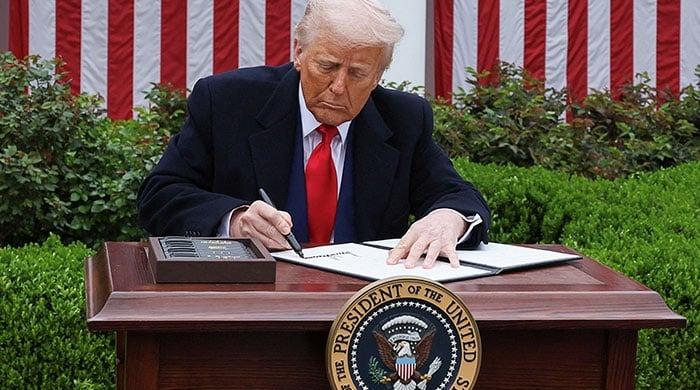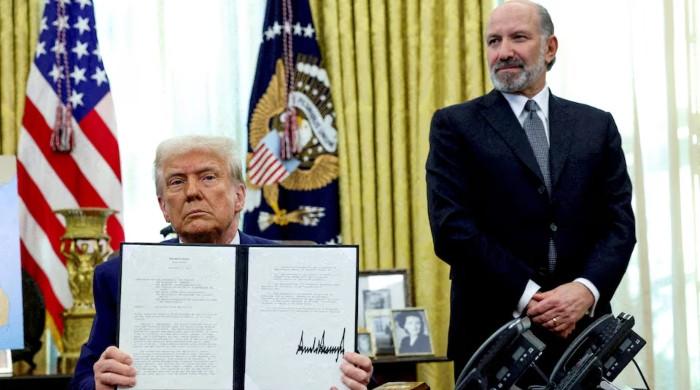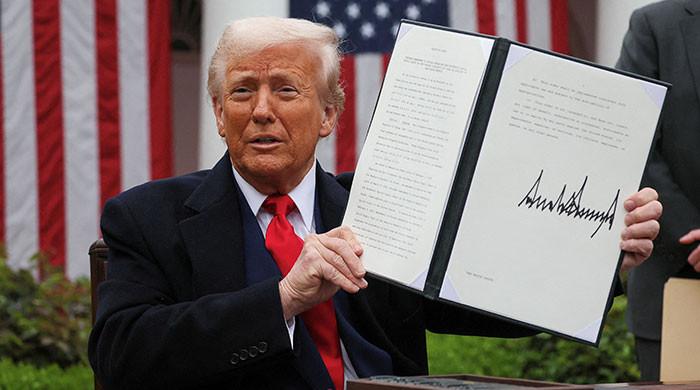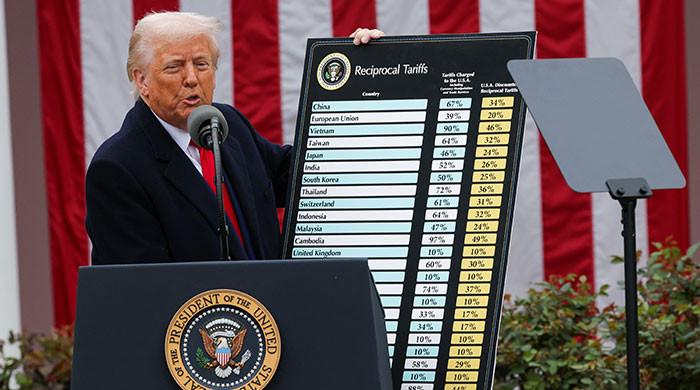India puts record 104 satellites into orbit
Nearly all of the nano satellites are from other countries India now holds record for launching most satellites in one go ISRO is also mulling the idea of missions to Jupiter and Venus
February 15, 2017

INDIA: India successfully put a record 104 satellites from a single rocket into orbit on Wednesday in the latest triumph for its famously frugal space agency.
Scientists gathered for the launch in the southern spaceport of Sriharikota burst into applause as the head of India´s Space Research Organisation (ISRO) announced all the satellites had been ejected.
"My hearty congratulations to the ISRO team for this success," ISRO director Kiran Kumar told scientists who had gathered at the observatory to watch the progress of the Polar Satellite Launch Vehicle (PSLV).
Indian Prime Minister Narendra Modi immediately congratulated the scientists for the successful launch which smashes a record previously held by Russia.
"This remarkable feat ... is yet another proud moment for our space scientific community and the nation. India salutes our scientists," Modi wrote on Twitter.
The rocket took off at 9:28am (0358 GMT) and cruised at a speed of 27,000 kilometres (16,777) per hour, ejecting all the 104 satellites into orbit in around 30 minutes, according to ISRO.
The rocket´s main cargo was a 714 kilogram satellite for earth observation but it was also loaded with 103 smaller "nano satellites", weighing a combined 664 kilograms.
Nearly all of the nano satellites are from other countries, including Israel, Kazakhstan, The Netherlands, Switzerland, United Arab Emirates and 96 from United States.
The launch means India now holds the record for launching the most satellites in one go, surpassing Russia which launched 39 satellites in a single mission in June 2014.
The business of putting commercial satellites into space for a fee is growing as phone, Internet and other companies, as well as countries, seek greater and more high-tech communications.
India is competing with other international players for a greater share of that launch market, and is known for its low-cost space programme.
Last June, India set a national record after it successfully launched a rocket carrying 20 satellites, including 13 from the US.
It sent an unmanned rocket to orbit Mars in 2013 at a cost of just $73 million, compared with NASA´s Maven Mars mission which had a $671 million price tag.
ISRO is also mulling the idea of missions to Jupiter and Venus.
Modi has often hailed India´s budget space technology, quipping in 2014 that a rocket that launched four foreign satellites into orbit had cost less to make than Hollywood film "Gravity".











